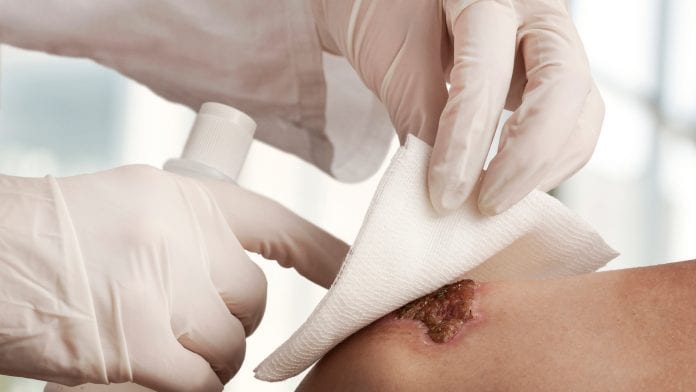
Researchers have demonstrated that hydrogel is more beneficial for wound management and healing than traditional bandages and gauzes.
Recent advances in hydrogel have made them antibacterial, biodegradable, and better suited for healing irregular and deep wounds according to researchers from the Southern University of Science and Technology in China.
The research has been published in APL Bioengineering by AIP Publishing.
Developments in material science
Bandages and gauzes are effective in controlling haemorrhage, however, they are not biodegradable and are susceptible to infection, as well as being unsuitable for irregularly shaped wounds. They also might cause secondary tissue damage and are almost ineffective for wound healing.
According to the researchers, hydrogel, a 3D network that is composed of hydrophilic polymers, which can absorb and swell in water, can offer benefits to wound healing by being injectable, as well as biodegradable and antibacterial. Polysaccharide-based hydrogels are biocompatible, biodegradable, and nontoxic. In contrast, synthetic polymer-based hydrogels are more easily modified and have better mechanical strength.
When used as a wound dressing, hydrogel not only forms a physical barrier and removes excess exudate but also provides a moisture environment that promotes the wound healing process. Additionally, hydrogel can perfectly fill irregularly shaped wounds and deal with deep bleeding efficiently.
“With the rapid developments of material science, there are numerous highly efficient wound dressings being developed,” said author Decheng Wu.
However, the poor mechanical strength of existing hydrogel dressings can limit their applications in the treatment of massive bleeding, such as arterial ruptures, since they cannot provide effective protection for the wound to prevent secondary damage. Due to this, the researchers will address this problem by focusing future research on developing hydrogel dressings with high mechanical strength.
“Hydrogels are a kind of superior material,” said Wu. “In my opinion, high-performance hydrogels also have potential in the field of tissue engineering to replace some tissues that can self-heal and regenerate, such as annulus fibrosus, meniscus, and cornea.”









